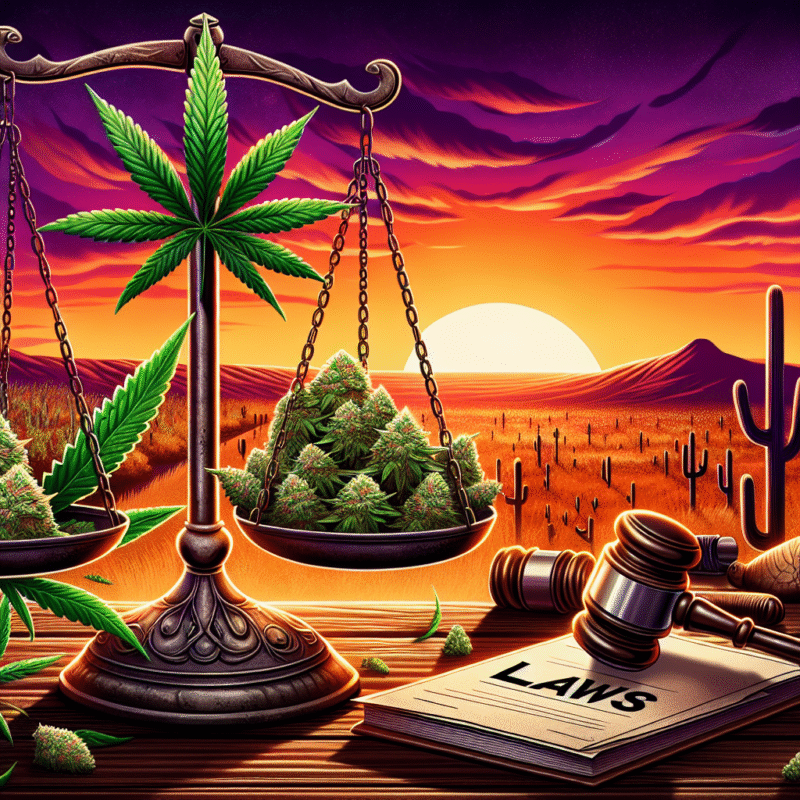Texas Takes on Hemp: The Current Legal Status of Hemp Flower
In recent years, the cannabis landscape in the United States has undergone a significant transformation. Texas, traditionally known for its conservative stance on marijuana, has recently made headlines with its evolving policies regarding hemp. As the line between industrial hemp and marijuana becomes increasingly blurred, understanding the current legal status of hemp flower in Texas is essential for consumers, growers, and advocates alike.
A Brief History of Hemp Legislation in Texas
Historically, the cultivation and use of cannabis were prohibited in Texas, as they were federally. However, the 2018 Farm Bill marked a pivotal shift, legalizing industrial hemp at the federal level. This legislation allowed states to regulate hemp as long as it contained less than 0.3% THC (the psychoactive component of cannabis). Following this, Texas passed its own hemp law in 2019, allowing the cultivation and sale of hemp and hemp-derived products.
What Constitutes Hemp?
According to both the federal government and Texas state law, hemp is defined as cannabis sativa containing no more than 0.3% THC. This low-THC cannabis can be used for a variety of purposes, including textile production, food products, and CBD oil extraction. Hemp flower, specifically, refers to the flowering tops of the plant, which can be used for smoking, tinctures, and other products.
Current Legal Status of Hemp Flower in Texas
As of now, hemp flower is legal in Texas, but it’s essential to understand the nuances of this legality. The state allows the cultivation of hemp, which includes the harvest of hemp flower, as long as it meets the THC threshold. Licensed growers must adhere to strict regulations regarding testing and labeling.
Licensing Requirements
To grow hemp in Texas, individuals and companies must secure a license through the Texas Department of Agriculture (TDA). This process includes submitting an application, background checks, and paying applicable fees. Once licensed, growers must comply with specific testing requirements to ensure that their hemp products do not exceed the THC limit.
Retail Sales and Consumer Use
Hemp flower is available for sale in various forms, including pre-rolled joints, loose flower, and CBD-infused products. Retailers are required to comply with state regulations, which mandate proper labeling, packaging, and testing results. Consumers can purchase hemp flower legally, and there’s a growing market for it, driven by the rising interest in CBD and wellness products.
However, ambiguity still surrounds the recreational use of hemp flower. While hemp itself is legal, some law enforcement agencies and officials remain unclear about the distinction between hemp and marijuana, leading to potential legal complications for users.
Challenges and Future Developments
Despite the advancements in hemp legislation, Texas’s hemp industry faces numerous challenges. One of the biggest hurdles is the lack of a clear regulatory framework surrounding the sale and use of hemp products, particularly in terms of local and municipal laws and enforcement. Additionally, many consumers are still wary of the legal gray areas that exist, particularly concerning law enforcement interpretations.
Furthermore, ongoing discussions regarding the potential legalization of recreational marijuana could impact the hemp industry. A shift in policy could redefine the cannabis landscape, affecting everything from production to consumption in Texas.
Conclusion
The journey of hemp in Texas is a compelling tale of evolving legislation and cultural shifts. While the current legal status of hemp flower offers great opportunities for growers and consumers alike, significant challenges remain. As Texans navigate this evolving landscape, staying informed about the legal and regulatory aspects of hemp will be essential for anyone involved in this burgeoning industry. Whether you’re a hemp farmer, retailer, or consumer, understanding these nuances will be vital as Texas continues to take on hemp.

